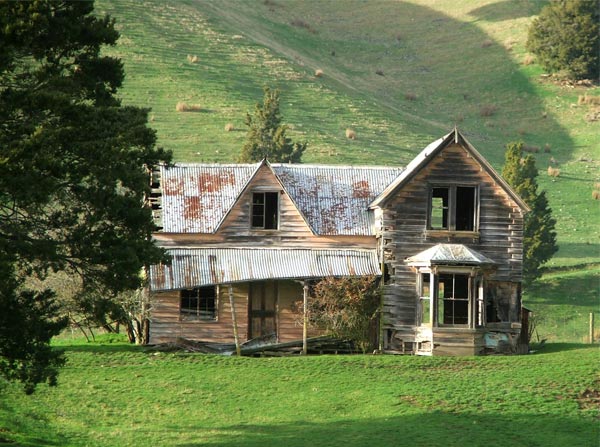
Where will we live?

"Where will we live?" asks James Meek.The answer is: in low-cost shacks, since we are all precarious now and may lose our jobs at any moment. Around my way the shacks go from tool sheds to a converted pigsty, to a structure made by nailing pallets together, to a yurt imported from Mongolia, to a four-room double-story house. What these shacks have in common is that they were built in secret without planning permission and without conforming to building regulations.
This doesn't mean they are illegal, but the planning authorities have the power to evict the occupants if they choose to do so. Occasionally shacks are legalised. Most shacks don't have a lavatory, hot running water or mains electricity. They are structurally safe. Shack-dwellers burn wind-fall firewood or old pallets. I have lived for more than thirty years in my rural county and have known only one shack to burn down.
The double-storey house, which the owner built, cost £3000, my own shack £2000, the yurt a little more: the tool shed and pigsty cost a few hundred to convert. Materials are bought, or found on free-cycle, or picked up from skips and dumps. Or they are found in nature: my rafters were once ash saplings growing along the railway. The cost of a shack, not counting the land, is about 2 or 3 per cent of the cost of a house.
Often there are no bills to pay. Some shack-dwellers install rainwater tanks and use charcoal for cooking. A shack needs a piece of land to stand on: most are built on small farms, or by young people on their parents' land or in woodland thickets. Almost all are hidden behind thick --- even specially planted --- hedges.
Another answer to James Meek's question is: in caravans [trailers]. At a guess, perhaps 10 per cent of the people in my area live in shacks or caravans, in the shadows between legality and illegality. Shacks are creative; caravans are not. Shack-building is an education in self-reliance and responsibility. Many shack-dwellers will express their contempt for planning law and for the crowds of officials, and the system of debt --- rents and mortgages --- which it sustains. Having few expenses, the shack-dweller can be relaxed about work, but also paranoid about secrecy. He does not share the fantastical beliefthat he can borrow his way to prosperity. Nor, however, does he believe that desertion from the circuits of capital, an individual solution to an individual problem, does anything to address the national problem.